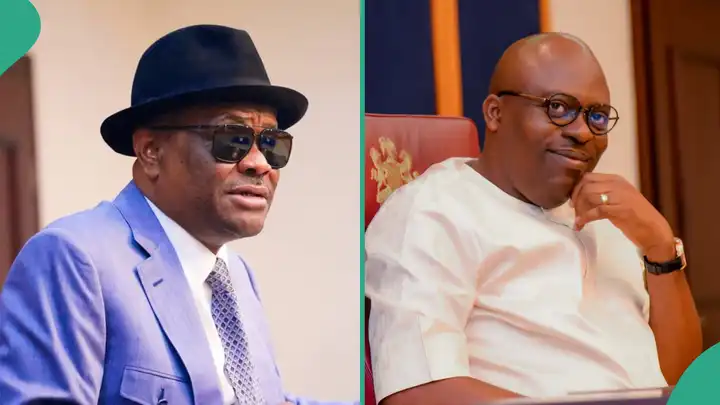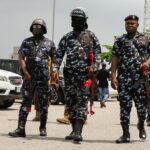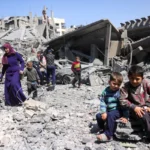……Uncertainty Lingers Over Return of Governor Fubara

As the six-month state of emergency imposed on Rivers State draws to a close, questions are mounting over the silence surrounding the return of suspended Governor Siminalayi Fubara and the restoration of democratic institutions. The emergency rule, declared on February 19 by President Bola Tinubu, saw the removal of the governor, the state executive council, and the House of Assembly. While the emergency was described as a first instance period, there has been no official indication of what happens next.
A State in Limbo
Since the emergency began, Rivers State has witnessed a mixed bag of reactions and events. There were legal challenges, public debates, and even moments of hope that democracy would soon return. Yet, weeks to the end of the six-month mark, there is still no clear sign of reinstating the governor or lifting the suspension on democratic processes.
During this interregnum, key developments included the planning of local government elections and efforts to reconcile the key political actors—Governor Fubara, FCT Minister Nyesom Wike, and the state assembly led by Martin Amaewhule.
A major highlight came on June 27 after a private meeting convened by the President reportedly led to a truce. Governor Fubara later confirmed his acceptance of the reconciliation deal, including his willingness to work with Wike again. This public gesture raised hopes that the crisis was nearing resolution.
Expectations Crumble Amid Prolonged Silence
Many had anticipated that the emergency would be lifted on significant dates such as May 29 marking Tinubu’s second year in office or June 12 commemorating Nigeria’s historic 1993 election. When neither date brought change, disappointment spread among citizens and political stakeholders.
Governor Fubara then dissolved his political support groups and asked his allies to disband all political structures built around him. Since then, prominent pro-Fubara groups, including the Rivers Elders Forum, have gone silent. Instead, images of the governor appearing at public events alongside Wike and Amaewhule have dominated the media.
Despite these reconciliatory images, there has been no official announcement of plans to restore democratic governance. Neither the presidency nor any of the reconciled parties has given a timeline or update on when to expect democratic processes to resume.
Election Plans Amid Legal Uncertainty
The Sole Administrator, Vice Admiral Ibok-Ete Ibas, is moving ahead with preparations for local government elections. As part of the reconciliation terms, it was reportedly agreed that Governor Fubara would not sponsor any candidates.
On Monday, the new chairman of the Rivers State Independent Electoral Commission (RSIEC), Michael Ekpai Odey, announced that the council polls would now take place on August 30, shifting from the earlier August 9 date. The change was made to ensure broader inclusion and compliance with the RSIEC Law No. 2 of 2018 (as amended).
Odey assured political parties, religious leaders, women groups, youth representatives, and traditional institutions that the polls would be free, credible and transparent. The electoral timetable began on July 28 and will conclude with a possible chairmanship runoff on September 13.
Meanwhile, several court cases challenging the legality of the emergency rule are still pending. Most notably, seven PDP governors representing Bauchi, Adamawa, Bayelsa, Enugu, Osun, Plateau, and Zamfara have approached the Supreme Court, arguing that the President violated Sections 1(2), 5(2), and 305 of the 1999 Constitution (as amended).
A separate case filed by ex-lawmaker Farah Dagogo also contests the constitutionality of the emergency declaration. Initially filed in Port Harcourt, the suit has since been transferred to Abuja, following a directive from the Attorney-General of the Federation.
Stakeholders Voice Their Concerns
In the face of this legal and political ambiguity, prominent voices in Rivers are calling for the immediate restoration of democratic rule.
Dr Lawrence Ibiayemie, a member of the Rivers Elders Forum, stated:
“There is no more justification. Democracy is not just about elections. It’s about letting the people have a say in how they are governed. It’s about checks and balances. It’s about fairness, justice and service to the people.”
“When we suspend democratic institutions, projects don’t move, salaries are delayed or misapplied and the people who are the real owners of government are left in the dark. It’s hurting us all.”
“For too long now, local government councils are not functioning as they should. Our House of Assembly isn’t working. Many important decisions that should go through democratic processes are now being handled behind closed doors. And the question we must ask is this. We feel it in our communities. Roads remain bad. Health centres are empty. Youths are idle. Markets are shrinking. Investors are afraid to come in. The uncertainty affects everyone.”
“This is not about party politics or who is in power. It’s about all of us—the future of our children, the dignity of our communities, and the image of Rivers State. We are a great people, and we deserve better.”
“It is time to return to the rule of law. It is time to let the local councils work. It is time to let the people’s representatives speak and act freely. It is time to rebuild trust in our institutions. I call on our leaders at all levels, to put the people first. Let the constitution guide us. Let peace and justice lead us. And let us all say together: Bring back democracy to Rivers State.”
Courage Nsirmovu, a rights advocate and Coordinator of the Pilex Centre for Civic Education Initiative, also weighed in:
“There is no justification to continue suspending democratic institutions in Rivers State. There was no justification in suspending democratic institutions in Rivers State ab initio because Rivers State was not at war or intense breakdown of law and order like Benue or Plateau State. Rivers State was at peace when the declaration was made and we are still at peace after the illegal declaration.”
“The action of the President is a continuing illegality and impunity and hence without any lawful justification whatsoever.”
“Politically, the reconciliation between the disputing parties is a good reason to reinstate the governor and apologise to him for suspending him illegally.”
Nsirmovu also expressed frustration with the public’s response to what he sees as a violation of constitutional order:
“We must learn to actively resist any unconstitutional or unlawful act of whosoever. As such, we, the Concerned Civil Society Organisations in Rivers State and Pilex Centre, call on the President to forthwith restore the institutions of democratic rule in Rivers State and apologise to us. The President has dragged this pain too much and the people may react in ways that he may not be able to control”.
Final Thoughts
As the six-month emergency rule approaches its final days, the silence from the presidency and reconciled actors is prompting more questions than answers. With litigation ongoing, elections approaching, and governance still in limbo, Rivers State remains suspended in a fragile political pause, one that could either tip toward restoration or extend into another uncertain chapter.


